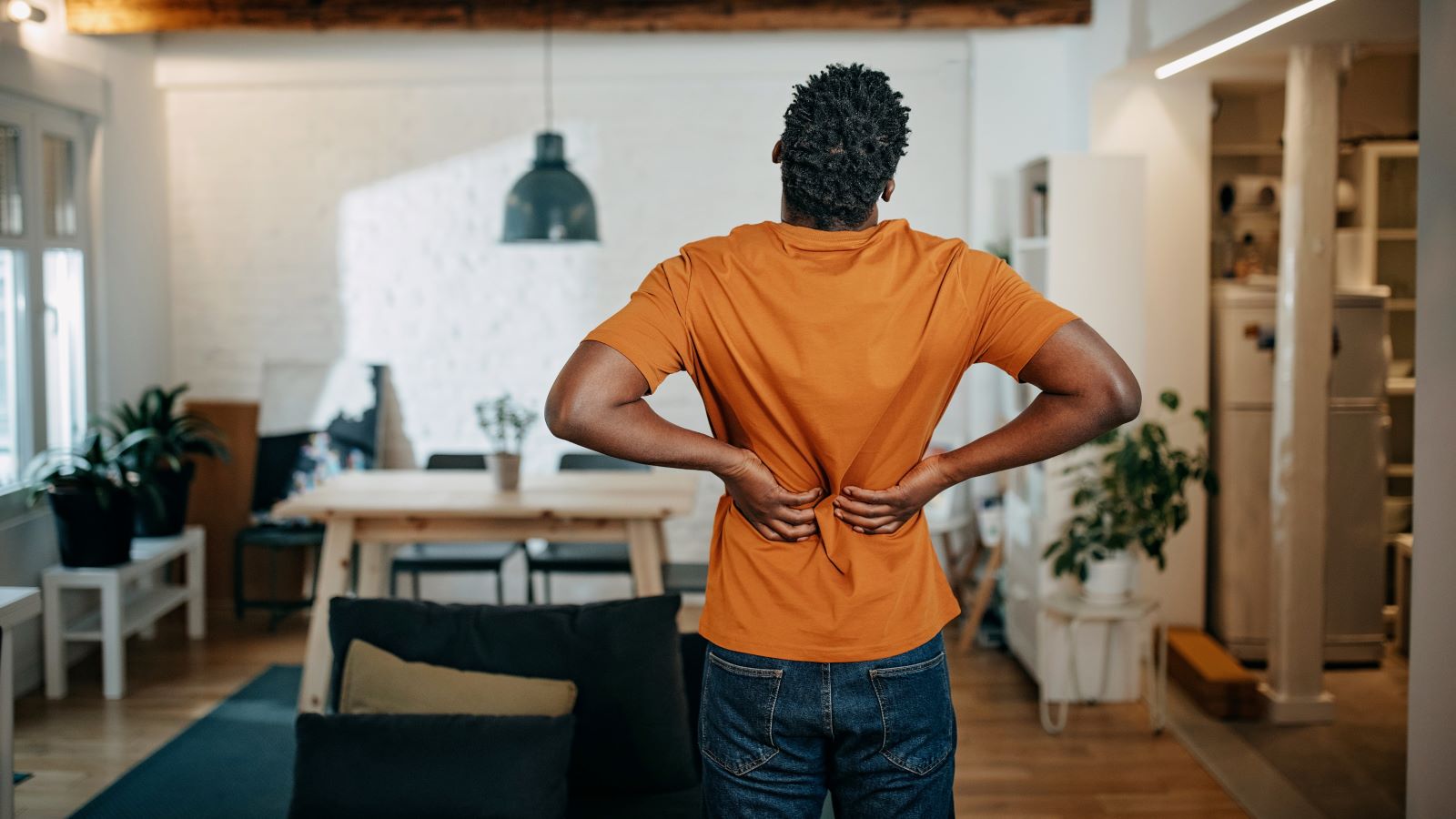<< Back
3 Signs Your Back Pain Is Actually From Kidney Stones

August 19, 2025
Whether it’s from a pulled muscle, poor posture, or just moving a certain way, back pain might start to seem routine.
But if the pain comes on suddenly — and feels sharp or severe — it could be something more serious, like kidney stones.
So how can you tell the difference? Here are three clues your back pain might be from your kidney stones, not your sore muscles.
1. The pain starts in your flank.
Kidney stone pain usually begins in the flank — the area on the side of your back between your ribs and hips.
“As the kidney stone moves down the ureter, the pain will migrate and wrap around your side and shoot down into your groin area,” says Michael Siev, MD, a urologist with the Tallwood Urology & Kidney Institute.
Unlike muscle pain, which tends to be dull and achy, kidney stone pain is sharp, severe, and nearly impossible to ignore.
> Related: These 5 Tips Could Help You Avoid Kidney Stones
2. Changing positions doesn’t help.
If you’ve ever pulled a muscle, you know that rest, stretching or lying in a different position usually brings relief. But with kidney stones, it isn’t that easy.
“People with kidney stones often pace or shift around trying to get comfortable, but they just can’t,” says Dr. Siev.
If nothing you do eases the pain, or it just keeps getting worse, it’s time to see a doctor.
3. It’s more than just back pain.
Kidney stones don’t usually show up alone.
Look out for other warning signs like:
- Pain or burning when you urinate
- Blood in the urine
- A constant urge to go to the bathroom, even if little comes out
- Nausea or vomiting
- Fever or chills, which may signal infection
> Related: Could Kidney Stones Be Causing Your Back Pain?
When in doubt, see a doctor.
Back pain might be common, but kidney stone pain is different — sudden, sharp and relentless. If you’re not sure what’s causing yours, especially if you have fever or other symptoms, don’t wait it out.
“Early diagnosis can help manage your symptoms and prevent complications,” says Dr. Siev.